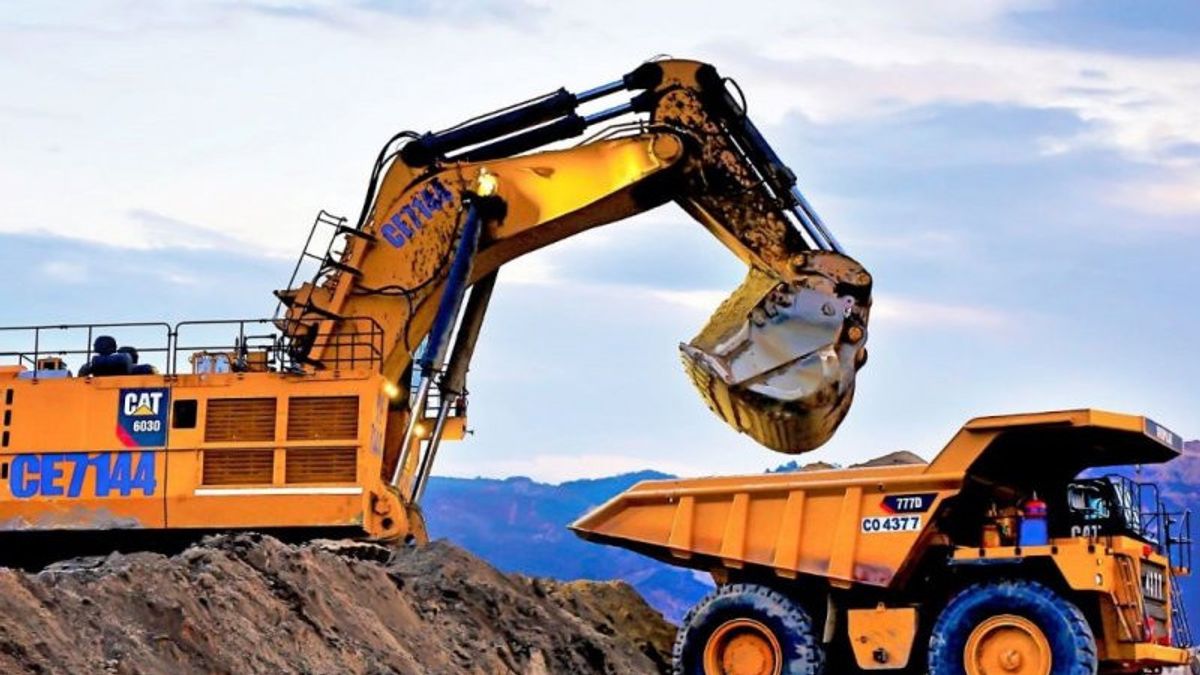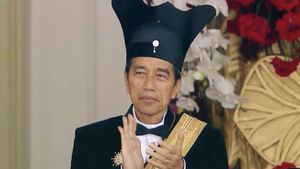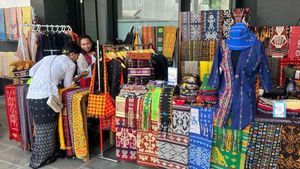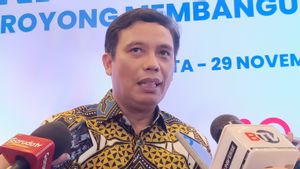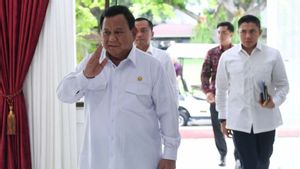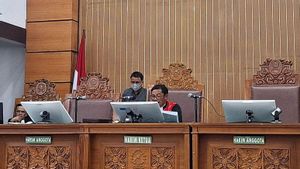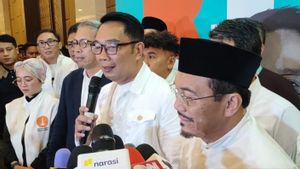JAKARTA - President Joko Widodo (Jokowi) said that Indonesia is trying to achieve the downstream leading commodities owned, not only in mineral commodities, but also in non-mineral commodities, agricultural products, and marine products.
The downstream process must also involve technology transfer by utilizing new and renewable energy sources (EBT), as well as minimizing environmental impacts.
This was conveyed by President Jokowi at the Annual Session of the MPR RI and the Joint Session of the DPR RI and DPD RI in the context of the 78th Anniversary of the Proclamation of Independence of the Republic of Indonesia, on Wednesday, August 16.
Jokowi said that the green economy and downstreaming are windows of opportunity for Indonesia to achieve progress, with natural resources (SDA) owned, including mineral materials, plantation products, marine products, and EBT energy sources.
"The strength of natural resources alone is not enough, so just the owner is not enough, because it will make us a lazy nation that only sells raw materials of wealth without added value, without any sustainability," he said.
To carry out this mandate, the Ministry of Industry (Kemenperin) will implement a downstream-based industrialization policy that provides various benefits, both in the form of added value of industry, state revenue, and community welfare.
"In downstream nickel, the Ministry of Industry calculates the potential added value in the nickel smelter industry which can produce up to downstream products. Compared to the price of raw nickel ore of 30 US dollars/tone, if processed to become MHP, the added value of these commodities can increase by 120.94 times or reach 3,628 US dollars/tonnes," said Minister of Industry (Menperin) Agus Gumiwang Kartasasmita in a written statement received by VOI, Friday, August 18.
To optimize the increase in added value by processing commodities into downstream products, the Ministry of Industry takes steps to present the industry, namely through the promotion of investment for downstream products including fiscal and non-fiscal incentives, expansion of international cooperation to fill the new export market, and strengthening the ability of negotiations and positions in an effort to deal with pressure from international trade and diplomacy.
In the agro industry sector, the Ministry of Industry seeks downstreaming to produce innovative products that meet the needs of the community, especially to support environmental sustainability. Downstream oil palm commodities produce an oleo food complex which is a new product of modern food that is healthy and nutritious.
Then, biomaterial complexes that can also spur the mastery of technology and commercialization of the new biomaterial industry for import substitution, as well as palm-based vegetable fuel (biodiesel, green diesel, green fuel, biomass) as fuel for EBT to reduce greenhouse gas emissions.
Indicators of the achievement of the downstream oil palm program are shown by changes in the composition of exports between raw materials and processed products. In 2015, the export composition of palm oil covers 18 percent of CPO and 6 percent of CPKO, the remaining 61 percent of refinery products, and 15 percent of other products.
In 2022, the export composition of raw materials has decreased to 2 percent CPO and 4 percent CPKO, and the rest are downstream products which include 73 percent of refinearly products and 21 percent of other products. The palm oil industry contributed 3.5 percent to the national GDP.
The manufacturing industry is also encouraged to utilize EBT to create a sustainable industry. It is noted that several industrial areas have invested in the supply of electricity with EBT, both from hydroelectric power plants (PLTA), solar power plants (PLTS), and other EBT sources.
SEE ALSO:
"The Ministry of Industry cooperates with various parties in developing Eco Industrial Park (EIP) or environmentally friendly industrial areas that have important implications for environmental conservation in the industrial sector," said Minister of Industry Agus.
To prepare human resources (HR) that support downstreaming, the Ministry of Industry accelerates the development of productive, competent, and global competitive industrial human resources in the era of digital transformation.
By continuing to pay attention to technological developments and also dynamics in the international community, Agus said, his party continues to adapt to the paradigm from time to time, including related to EBT and digitization to produce green products.
"The success of downstreaming requires support and cooperation from various parties to overcome existing challenges, such as the availability of infrastructure, energy, logistics, licensing, fiscal facilities, and security," he concluded.
The English, Chinese, Japanese, Arabic, and French versions are automatically generated by the AI. So there may still be inaccuracies in translating, please always see Indonesian as our main language. (system supported by DigitalSiber.id)
